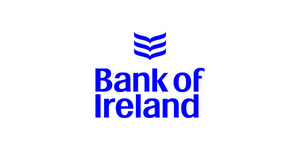What is a bridging loan?
A bridging loan is a short-term funding option that is used to ‘bridge the gap’ between a payment going out and money coming in.
Bridging loans are designed to help people complete the purchase of a property that would otherwise not be possible.
As an example, if you were to purchase a property at an auction, then you may find yourself in a position where you need the availability of funding quickly in order to complete on your purchase.
Mainstream traditional funding methods will nearly always take a lot longer to arrange. In this situation, you could get a bridging loan for the short term and complete your purchase, while at the same time arranging more traditional mainstream funding.
Once you secure your mainstream funding, you could use this money to repay the bridging loan.
How do bridging loans work and what can they be used for?
A common use for a bridging loan is to purchase a property that needs development or is dilapidated. Depending on the condition of the property, a mainstream lender may not be willing to lend on it.
Therefore, you could use a bridging loan to purchase the property in its current state, renovate it to a standard that is acceptable to a mainstream lender and then apply for mainstream funding in order to repay the bridging loan.
When looking at the above situations, the ‘exit strategy’ to repay the bridging loan is securing alternative mainstream funding. A bridging loan lender will not always require you to secure alternative funding to repay their loan. But they will require you to have a strong exit strategy. This could be the sale of the property you are purchasing or the sale of alternative assets.
Another point to note is that bridging loans are almost always taken on an ‘interest only’ basis. While you can make repayments on a monthly basis, the lenders are happy for you to make no repayments for the duration of the loan and roll the interest up and repay it all at the same time as settling the loan.
To put it simply, an exit strategy is the method you will use to repay your loan.
When assessing your application, a lender will look at your exit strategy and depending on what you have in place, it can make the application process much smoother.
Lenders use exit strategies to assess the risk and ensure that borrowers have a practical plan to repay the loan. If you're unable to repay the loan, the lender can repossess the property, which could damage your credit history and result in significant financial loss.
Some examples of an exit strategy include selling your old property or using cash from another source like an investment. Of course, your lender will need proof of this to determine if your strategy is viable or not, as like with all finance lenders, they want to mitigate their risk exposure.
If they see your exit strategy as risky or uncertain, they may reject your application.
The two types of bridging loans
Open bridging loans
Open bridging loans offer more flexibility in terms of repayment. You can repay the loan at any time, and the interest is typically charged daily. Essentially, there is no fixed repayment date imposed by the lender.
This flexibility also comes with a higher risk for the lender. As a result, open bridging loans often have higher interest rates.
Suitable for: Open bridging loans are suitable for those who are unsure about the timing of their property sale or want to maintain maximum flexibility in their repayment options.


Closed bridging loans
Closed bridging loans have a fixed repayment schedule, often tied to the completion date of your property sale. This means you'll know the exact amount you need to repay and when.
Due to the reduced risk for the lender, closed bridging loans typically have lower interest rates compared to open bridging loans.
Suitable for: Closed bridging loans are ideal for those who have a clear timeline for the sale of their property and want a predictable repayment schedule.

How is a bridging loan settled?
In order to settle a bridging loan, you will be required to repay the original funds plus any rolled-up interest and fees to the bridging loan lender.
Prior to the lender agreeing and releasing money for the bridging loan, they would have required you to have a strong exit strategy to ensure the money would be available to settle the bridging loan when required.
This could have been agreed as selling the asset or property the bridging loan was secured on, or it could be by refinancing or remortgaging the same asset to release the equity. Alternatively, you may have agreed to sell an alternative asset or settle by way of other funds that were to become available in the short term.
Either way, once you are in a position to carry out your exit strategy, you will be expected to use the funds to settle your bridging loan. The term of your bridging loan is usually limited for a short period of time so any exit strategy would need to come to fruition within the timeframe for you to be able to fulfil your agreement to settle your bridging loan in a timely manner.
Bridging loan interest rates
Bridging loans by their very nature are a niche type of lending and as such the rates are always higher than that of a high street bank or building society.
While bridging lenders will have published rates, this can change depending on the individual circumstances of a case. The rate is of course always agreed upon upfront before any agreements are signed.
While trying to obtain the best bridging loan rate, it’s important to look at the overall package to assess the ‘true cost’ of the product.
Bridging loans will nearly always have fees attached and it is important to take all this into account as well as the length of time you plan to keep the loan for, before deciding if it truly is the best bridging loan rate available to you.
To get a better understanding of what interest you might pay, why not get in touch today?
At IMC Mortgage Brokers we are experts in assessing these factors to find you the most competitive and suitable loan for your needs.
These easy-to-access financial products are ideal for borrowers who need finance fast. When time is of the essence and your dream property is on the line, while your money is tied up in your old property, bridging loans ensure you do not “miss the boat”.
This removes much of the stress and uncertainty from the tricky cycle of selling and buying.
Bridging loans are also very useful for non-residential buyers. As a way to source auction finance for those who make their living through property, bridging loans present a speedy way to pounce on promising properties when the time is ripe.
For those seeking short-term business loans, bridging loans may also offer a way to move on to greener pastures and keep enterprises ticking over while loose ends are tied up at old premises.
There are a few drawbacks to be aware of when choosing bridging finance. Like most short-term finance options, interest rates are often relatively high, and admin fees are typically applied.
It’s important that anyone using a bridging loan is aware of all of the charges and the level of interest they will be expected to pay, on top of their actual loan amount, before proceeding.
It’s also important to know exactly how you will repay your bridging loan. Missed payments on short-term financial products can quickly spiral into penalty fees and rising repayments.
Having a concrete idea of precisely when and how you will be able to repay, and agreeing to realistic terms, will protect you from the potential risk of growing debt which, in very serious cases, can result in you losing your property.
Frequently asked questions
Most bridging lenders will require you to have a deposit of 25-30% of the value of the property or asset you want to secure the bridging loan against. This will usually include the rolled-up interest and therefore is categorised as the Gross Loan Amount.
If you do not have the required deposit amount then bridging loan lenders can usually take security over other property or assets you are willing to include.
A lot will also depend on your exit strategy. If it’s deemed secure and strongly viable then you are likely to be able to secure a product which requires a smaller deposit. While in the same situation if your exit strategy is deemed as not so strong and secure then a lender may require a deposit of between 40-50%.
Bridging to the value of 100% of the property or asset is available but, it’s not as straightforward as it sounds.
While a lender will be happy to lend 100% (LTV) of the value of the property or the asset you are purchasing, they will require you to make available additional assets as security to offset the risk to the lender.
This will naturally bring additional risk to you the borrower as if you are unable to settle the bridging loan within the agreed timeframe, then you could end up having several assets repossessed at the same time in order to repay your bridging loan.
Bridging loans if you have bad credit are available, despite the common misconception that lenders are unwilling to offer such loans to individuals with bad credit histories. While mainstream lenders may be hesitant, specialist lenders are more open to providing these loans.
Below we have listed the process of getting a bridging loan with bad credit:
- Consult a mortgage broker: An experienced broker can guide you through the process, ensuring you provide all necessary information and find suitable lenders.
- Clear communication: Be transparent about your objectives and credit history to enable the broker to conduct thorough research.
- Credit check: The broker will perform a credit check to assess your eligibility and present potential rates to lenders.
- Property Valuation: Lenders will require a property valuation to ensure the property is suitable security for the loan.
- Application and assessment: Based on the information gathered, the broker will submit your application to the lender for assessment.
- Formal offer: If approved, you'll receive a formal offer outlining the terms and conditions of the loan.
- Solicitor Involvement: Your solicitor will handle the transfer of funds once the loan is approved.
While the process can be complex, working with a knowledgeable broker can make it easier to obtain a bridging loan with bad credit.
There are other options that can be used instead of a bridging loan, and in certain circumstances, they may be a better option. Those include:
- Secured loans – secured loans typically are used to borrow larger amounts of money, like a bridging loan. They also incur lower interest rates when compared to other loan types. However, the loan is secured against a large asset, most commonly your home. Therefore, if you fail to make payments, your home could be at risk.
- Other personal loans – there are certain lenders that will offer larger loan amounts, however, circumstances like your credit history and income will play a big part. Therefore, personal loans can’t always offer you the same capital a bridging loan or secured loan could.
If you are unsure about what loan is suitable for you, get in touch today! Our team of expert advisors are on hand to discuss your needs over a free initial consultation.

























